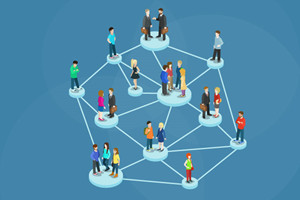Albrecht’s Four Types of Stress
We all face stress at various points in our lives and careers. There are many different types of stress and reasons for them and everyone handles them differently. But this means it can be difficult to identify stress, even in yourself.
Dr. Karl Albrecht, a pioneer in the development of stress reduction training for business, defined four different types of stress. These are: Time, Anticipatory, Situational, and Encounter Stress. Knowing what kind of stress you’re suffering from can help you to manage it. So let’s take a look at how to deal with each type.
Have you ever worried about missing a deadline or panicked because you were running late for a meeting? This is Time Stress. It can be managed and avoided by improving your time management skills. Use to-do lists and action programs if you don’t already and then prioritize your tasks to ensure you’re spending your time and energy effectively.
If you still struggle, it may be that you’re taking on too much work or that your work-life balance isn’t right for you. Speak to your manager if you think this is the case.
Anticipatory Stress is when you feel anxious about the future. For example, you might dread a presentation you’re due to give and have an unsettling fear that something will go wrong. Meditation and mindfulness can help you to focus on the present so that you don’t become overwhelmed by this kind of stress. You can also use positive affirmations and visualization to turn your fears into more optimistic feelings.
You experience Situational Stress in an emergency or when something unexpected happens. For example, if you discover that you’ve made a huge mistake or redundancies are being announced, manage your reactions to these situations by becoming more self-aware. This means recognizing when stress, anxiety, or anger is building up and taking steps to prevent it from escalating. For example, by using physical relaxation techniques to calm yourself down.
Lots of us are familiar with Encounter Stress. It’s similar to social anxiety. When you get anxious about meeting new people or being in a big group. You’re more likely to experience this if you work with people who are in distress, like a doctor working with patients or a customer service agent handling complaints. To mitigate Encounter Stress, work on your people skills and empathy so that you can better understand and feel confident about communicating with others.
Stress can have severe consequences, so it’s important that you do something about it early on. Use these tips as a guide, but always consult a health professional if you’re really struggling.
To learn more about how to manage stress effectively, read our article on Albrecht’s Four Types of Stress.















